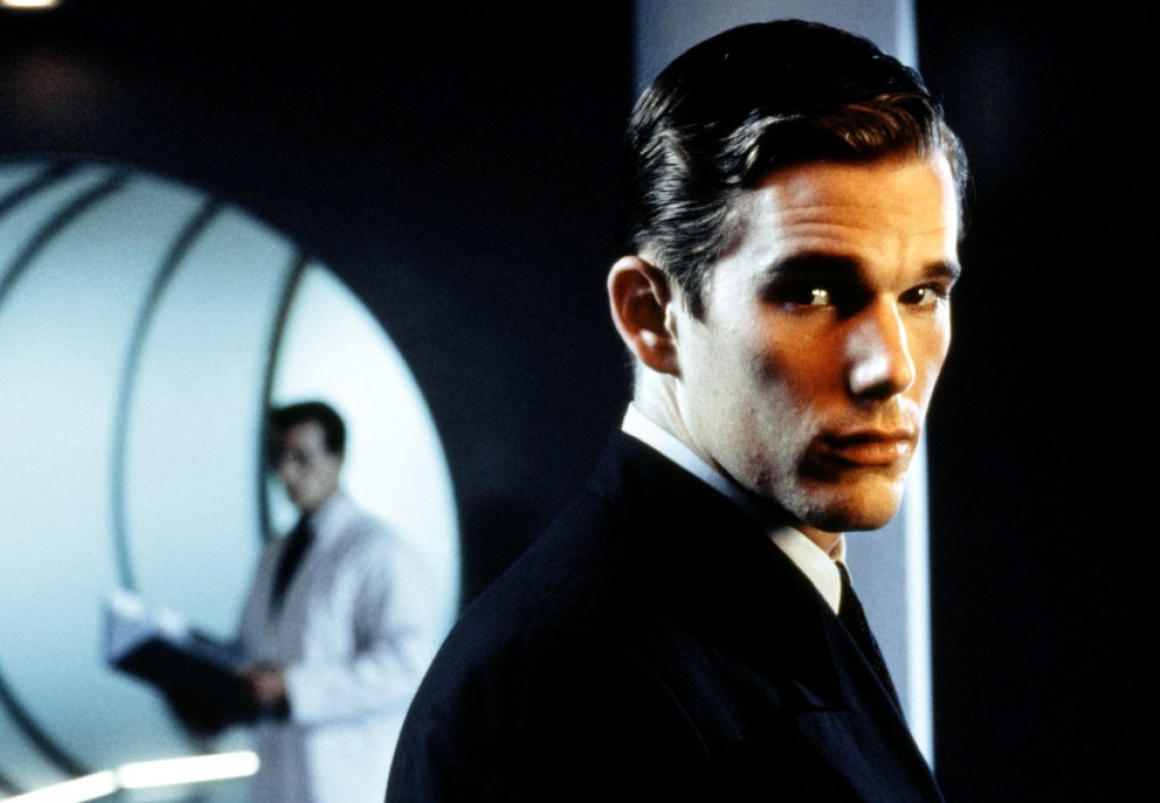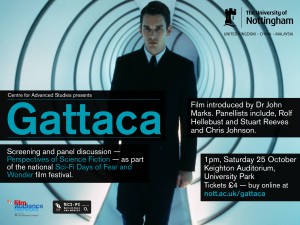
October 20, 2014, by Tara de Cozar
2001 and the human-machine relationship
This weekend, a number of our academics will discuss science fiction films ahead of a screening of Gattaca on University Park this weekend — you can buy tickets here. The screening and panel discussion is part of the national Sci Fi: Days of Fear and Wonder festival running from October to December. here Christopher Johnson from the Department of French — one of the panellists at Saturday’s event — talks about his favourite sci fi film.
I’m a member of the Science Technology Culture Research Group, which for a number of years has been exploring ideas about technology and the representation of technology.
One of our ongoing interests has been the history of cybernetics, which is directly relevant to the Human-Machine theme of the Science Fiction Film Festival. Probably my favourite film on this particular theme is Stanley Kubrick’s 2001: A Space Odyssey, originally released in April 1968, just eight months before the first circumnavigation of the moon by Apollo 8.
As a film, 2001 is made with Kubrick’s characteristic attention to accuracy and detail, informing and educating the audience about the future possibilities of space travel in a visually compelling way. On the other hand, and on a deeper level, the film raises some fundamental questions about the human-machine relationship and the evolutionary origins of this relationship.
One of the most striking images in the film is the cut from the spinning bone thrown by a pre- or proto-human to a satellite orbiting the earth. One of the most memorable sequences is astronaut David Bowman’s disconnection of the artificial intelligence HAL, who has decided that humans are a threat to the space mission and therefore must be eliminated.
My own continuing fascination with the film is that it is packed with images and scenes like these, which combine dramatic effect with a particular thought or idea. In this respect, 2001 is a film which can be watched again and again, appearing more profound and more provocative with each new viewing.
Click here for more info on the panel discussion and screening.
No comments yet, fill out a comment to be the first


Leave a Reply